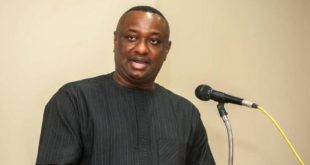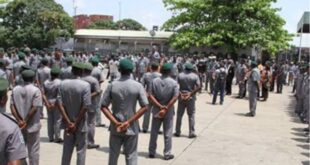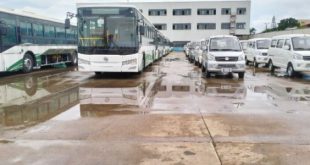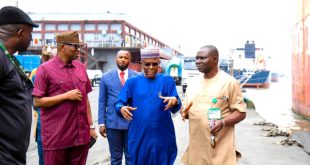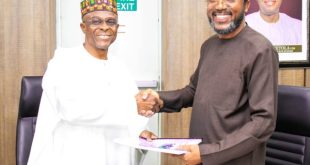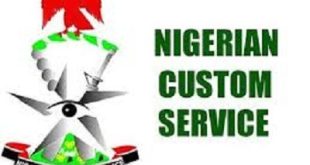By Babajide Okeowo
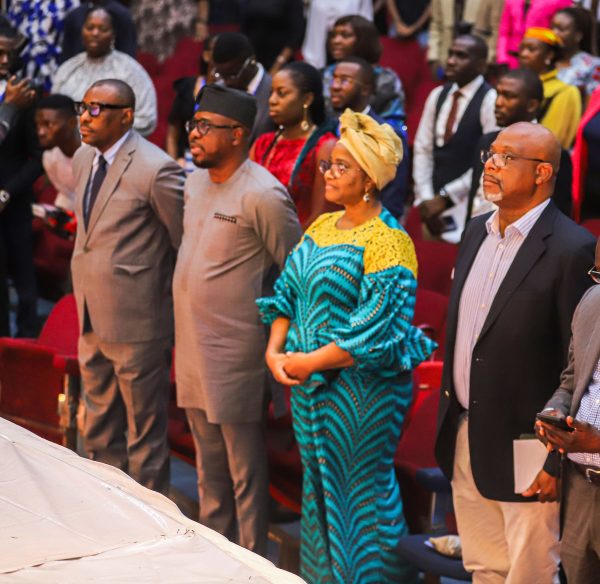
Stakeholders in the maritime industry have charted a clear path for a vibrant maritime industry and sustainable shipping sector in Nigeria.
Some of the points highlighted include the approval and development of additional deep seaports in the country, ensuring the setting up of a national shipping line or allowing more Nigerian shipowners who meet the criteria to be registered as national carrier.

According to the argument, section 35 of the Nigerian Maritime Administration and Safety Agency(NIMASA) Act provides the opportunity national carriers to carry Federal, State, Local government, Ministries, Department and Agencies’(MDAs) cargo in liquid, bulk and gas.
They made the call during the 5th edition of the Taiwo Afolabi Annual Maritime Conference with the theme: “A Maritime Road Map Project- Making Nigeria a Leading Maritime Nation in the World” which took place at the University of Lagos, Akoka, Lagos, last week.

According to a former director general of NIMASA, Barr. Temisan Omatseye, the reliance on foreign vessels to carry Nigerian minerals and exports at their determined freight rates which in most cases is higher than market rates has made Nigerian goods uncompetitive in the international market with the consequential inflationary effect on the economy.
He further lamented that the failure to take control of the supply chain of goods most especially as it relates to shipping must be considered as a national security threat being that Nigerians are now totally dependent on foreign shipowners to determine the freight rates to be charged and vessels for import and export.
For a sustainable shipping, Omatseye canvassed that the country must ensure the disbursement of the Cabotage Vessel Financing Fund (CVFF) by putting in place implementable regulations that meet both local and international best practices
“See that the implementation of the Cabotage act by ensuring that regulations as provided for under the Coastal and Inland Shipping Act of 2003 are complied with by protecting the interest of indigenous Nigerian shipowners
“Create a fund that allows for shipping companies to rather than pay Corporate Income Tax but pay their taxable profit into fund that can only be drawn by the said contributing companies for the building of ships or maritime infrastructure” he said.
In his intervention during the panel session, the Principal Counsel, Akabogu and Co., Dr. Emeka Akabogu lamented that the nation’s maritime sector suffers from gross neglect of salient issues by regulators.
Akabogu argued that there is no valid reason for the prolonged non-disbursement of the CVFF by the government, even as he wondered why the Maritime Fund captured in the NIMASA Act for the development of the sector hasn’t been utilized with the agency more focused on humanitarian activities as Corporate Social Responsibility (CSR) projects.
On her part, the President of Women’s International Shipping and Trading Association (WISTA) Nigeria, Mrs. Eunice Ezeoke singled out human capital development as the singular most important factor to be prioritized in Nigeria’s craving for a sustainable shipping sector.
“To build sustainability, we must first and foremost develop the human capital, build and maintain infrastructure and what are these infrastructure? We mention the development of deep seaports. However, deep seaports cannot be developed in isolation.In my opinion, the Lekki Deep Seaport is like putting the cart before the horse.
“We cannot build a deep sea port without building the infrastructure for cargo evacuation and cargo consolidation, they are supposed to go simultaneously. We are talking about the multi-modal system of taking out cargoes from the ports” she highlighted.” She noted.
Earlier in his welcome address, the Chairman of SIFAX Group, Dr. Taiwo Afolabi, who was represented by the Managing Director of Skye Capital, Mr. Bode Ojeniyi stated that the maritime industry in Nigeria is grappling with various issues including infrastructural deficit, foreign exchange bottleneck, insecurity on the waterways, low level of technology adoption and deployment as well as inconsistent policies, among others.
“The TAAM Conference, a partnership between the Maritime Forum of this University’s Law Faculty, was birthed to serve as a platform where key issues that will engender innovations and practical ideas needed to sustain growth of the maritime sector are discussed and workable solutions are proffered to challenges confronting the sector,” he said.
According to him, these issues have largely limited the ability of the sector to contribute significantly to the country’s Gross Domestic Product (GDP).
The event was graced by other maritime bigwigs such as; the former Continental President, African Women in Maritime (WIMAFRICA), Mrs. Jean-Chiazor Anishere (SAN); Convener of Lagos International Maritime Week, Barr. (Mrs.) Oritsematosan Edodo-Emore; President, WIMA-Nigeria, Mrs. Rollens Macfoy; Managing Solicitor, Trizon Law Chambers, Foluke Akinmoladun; Ify Ananzonwu, Vice President of The Nigerian Chamber of Shipping; Chief Executive Officer, Bomarah Group, Hajiya Bola Muse; amongst others.
 MMS PLUS NG – Maritime, Aviation, Business, Oil and Gas News Online Newspaper with coverage in Maritime, Oil and Gas, Aviation, Power and Energy as well as Financial News
MMS PLUS NG – Maritime, Aviation, Business, Oil and Gas News Online Newspaper with coverage in Maritime, Oil and Gas, Aviation, Power and Energy as well as Financial News




